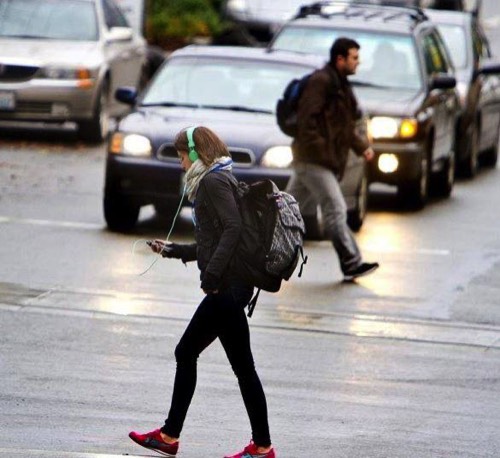Walking to Avoid

We’ve all done it, or something similar, right?
If I told you I did this I am guessing you don’t have particularly much judgment about it. You could probably enter into some dialogue with me how my actions were justified, i.e. make a positive judgment about it.
But what if that person was a close relative. Like your own father, for example? Is the judgment different? I’ve certainly experienced a lot of judgement around this when I’ve discussed this kind of thing with friends.
The judgment comes from all the conditioning we have about how we ‘should’ feel about our parents or other relatives. Now, some ‘in the know’ might say ‘good for you, I wouldn’t want to speak to that idiot either!’ Or perhaps something less kind. But I’m never looking for that kind of solidarity. I’m not carrying the bitterness that kind of sentiment carries.
One of the hardest things some of us have to deal with is coming to a realisation that one of our parents isn’t really the kind of person we aspire to or even like. We’re conditioned to look up to our parents. Yet they are just fallible human beings like the rest of us.
When I get into a deeper discussion about how I feel about my own father it often baffles people. Some listen to understand, and eventually do get some insight into the freedom I have realised. And it IS a wonderful, peaceful feeling I have around it. Others often can’t see past their own deep conditioning of how we should treat or feel about our parents.
My father was a very good provider when we were kids. He worked incredibly hard, often had two jobs, and whilst we were at the lower end of the working class scale with few luxuries, we didn’t go without anything we needed.
And frankly he was very poor at connecting with us children, and often abusive to us kids and our Mum.
And he was always doing the best he could in the moment. I’ve no doubt he was struggling with his own stuff, being a provider and parent, and also needed more love in his life.
Him disowning me for ten years was him doing what he thought was the right thing to do, in the moment, just like the rest of us.
I did a lot of work around this. Through counselling and self-exploration, and more so recently into gaining a deeper understanding of love. I have learnt so much about life, being a parent, and about love from my father.
And my understanding and being at peace with that does not mean I have to go visit him, hug him and hang out with him any more than anyone else in my life. I owe my father nothing, he owes me nothing. Not even an apology, although he has offered one in the last few years. Anyone who thinks otherwise is being influenced by their own conditioning of how we should be with our parents.
Spoiler Alert: We’re free to hang out and be with whoever we choose, irrespective of past conditioning.
Life is precious. I don’t hang around with people I don’t like. I don’t like my Dad. We’re just too different in many ways. I visit him, but often out of obligation rather than preference. One of my own mentors suggested to me last year that doing something for someone else out of obligation probably isn’t coming from love.
I also love my Dad. But it is no longer bound by the conditioning of how we should feel about our parents. I am genuinely free from that. And I have no bitterness, either. I am free of that too. So I love him just as I love the homeless guy who often sleeps under a shelter near my home. To me they deserve the same love and attention. There is no difference. There is no separation. When I believe there is I set up conditions for love and peace, of which there really are none.
I
t’s fascinating to witness people’s reaction to this deeper level of understanding of love. The unconditional nature of it all. How the ‘shoulds’ creep in. “Yes, but he’s your Dad!” they’ll say. “And so what?” I’ll say. Cue discussion that’s essentially about transactions - he did this for you so you should do that for him.
Love is not transactional. Love is freedom.
Another reaction when I share this with others is often one of sadness. I’m fascinated by that, too, since it also comes from the same conditioning and hence lack of realisation of freedom.
Personally I don’t feel sad about it. I feel the joyous freedom that is available to all of us. I feel the liberation of letting go of all the conditioning and expectations.
Anita Moorjani’s book Dying to be Me, continues to influence me in this way, knowing that on the other side we really are all one. The homeless guy, our parents, our abusers. We can love them all the same. In fact we do love them all the same, it’s only our conditioning that tells us otherwise. All part of our self-image that we use to project how we think we should love.
If you love spending time with your parents, your friends, your relatives, go do that! Be in that joy. We’re always free to follow our joy. But if you don’t, it’s not loving to sacrifice your time to do so. There is no liberation or love in imprisoning yourself in relationships that are not joyous for you, irrespective of the conditions of obligation.
Any time we sacrifice our joy is an attempt to separate ourselves from love.
We’re already free. Love is that freedom. Free to spend time with whoever we choose.
And free to keep walking too.
